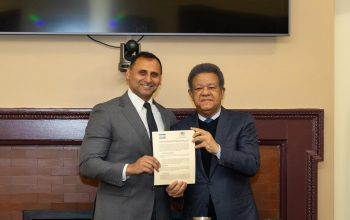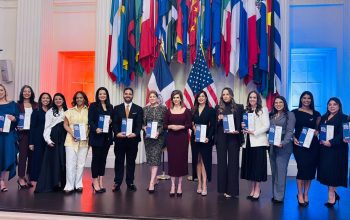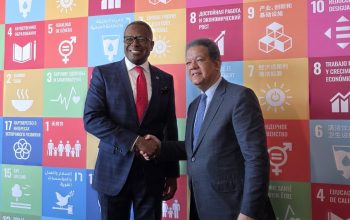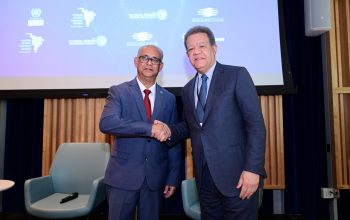news
Interest Rates, Remittance Taxes and Changes to Immigration Law Could Affect the DR in the Years to Come
January 11, 2017
Mario Báez, a United Nations official in New York City, said on Tuesday that among the issues that would affect the Dominican Republic, following Donald Trump taking office as president of the United States, are the interest rate, taxes on remittances and changes to immigration law.
For the United States, he forecasts economic growth greater than the average 2.2% of the last four years, a fiscal reform and a bigger deficit in the budget.
Báez gave such
remarks during the conference ” Elections in the United States: Results and Consequences, “organized by the Center for Electoral Studies of the Fundación Global Democracia y Desarrollo (Funglode), and the Global Foundation for Democracy and Development (GFDD).
At the beginning of his speech, he recalled that in the United States the president is not elected by direct vote, but by electoral colleges, and explained in detail how the states of Wisconsin, Michigan and Pennsylvania
made “the great difference”.
According to Báez, the first factor of Hillary Clinton’s defeat is that “people voted for change”, and to this adds that “Trump had a good message and made a good speech; Hillary was the victim of an image-killing campaign; and amongst the Obama coalition, to whom she addressed her speech, she did not resonate well.”
In the speaker’s opinion, Hillary could have better articulated a global message that generated hope for
the entire population and lacked a strategy to combat from the outset the “murdered image”. He adds that “the strategic-tactical machinery of the Clintons did not work and I attribute it to the fact that the Latino vote only increased by 1% compared to 2012; Hillary did not visit Wisconsin once during the campaign; and she did not mobilize enough the African-American vote in key cities.”
Báez recommends promoting responsible economic and social policies that promote growth and
political stability in the countries and the region; economic integration, by fostering the principles of open regionalism and South-South cooperation; defend the liberal economic order in the international arena, especially its principles and institutions, as well as the rights of immigrants in the West, providing the support that these populations require.
He also incentivized the protection immigrants’ remittances as an essential component of the principles of
economic freedom; building horizontal alliances with the progressive forces of the Western democracies that defend economic openness and liberal values.
At the end of the Q&A session, Dr. Leonel Fernández, President of GFDD and Funglode took the floor to congratulate the guest for his detailed presentation. Fernández took the opportunity to emphasize the need for systematic study groups to study the United States patterns, because they constitute “a great diversity that one
must learn to know”. Analyzed with a global vision they could help to understand what is happening in the Dominican Republic better.
The director of the Center for Electoral Studies, Ricardo Pérez Fernández, was in charge of opening and moderating the event.
Related Link:
http://www.funglode.org/






